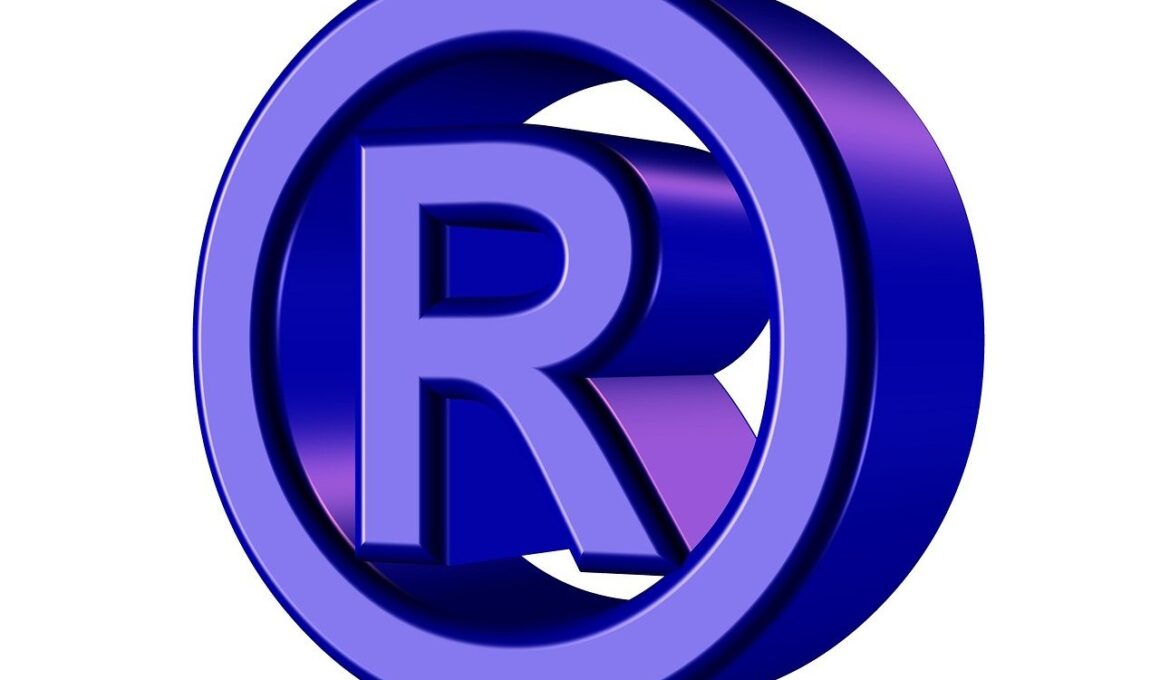The Impact of Domain Name Disputes on Brand Protection
In today’s digital age, domain names serve as crucial brand identifiers. A business’s online presence hinges on its domain name, often making it a target for disputes. Domain name disputes generally arise when multiple parties claim rights to a similar or identical name. These conflicts can arise leading to legal battles that may involve complicated copyright and trademark laws. A brand’s reputation can be severely impacted during these disputes, potentially confusing consumers and damaging customer trust. Furthermore, the rise of cybersquatting, where individuals register domain names with the intention of selling them at inflated prices, poses additional threats to brand integrity. Businesses must proactively protect their domain assets and register variations to minimize risks. Effective brand protection strategies include conducting regular audits and enforcing trademark rights. Alternative solutions include using legal avenues such as the Uniform Domain Name Dispute Resolution Policy (UDRP), which provides a legal framework for resolving disputes efficiently. Organizations must stay informed about domain registration trends and consumer behaviors to safeguard their online identity, essential for maintaining a strong brand presence in competitive markets. This protection not only safeguards a brand’s name but also defends its reputation in the digital realm.
Brand reputation greatly influences consumer purchasing decisions. When domain name disputes arise, the customer experience is often negatively affected. Confusion can arise when multiple similar or identical domain names exist, potentially leading customers to the wrong website. This results in lost sales opportunities and diminished customer trust. Companies must be highly aware of these possible outcomes and actively take steps to mitigate risks associated with domain disputes. Legal protection should involve using trademark registrations to stake a claim on brand names. By doing so, businesses can challenge infringing domain registrations more effectively. Additionally, it is critical for brands to monitor their online presence, utilizing tools that alert them to potential domain name issues. Building an online reputation management strategy will also help restore trust and credibility if a domain dispute escalates. Consumer sentiment analysis can provide insights into how domain issues affect brand perception. Understanding these dynamics is vital for developing responsive strategies. Brands should actively engage in protecting their intellectual property, ensuring robust legal measures are in place. Effective management of domain name disputes ultimately contributes to a brand’s longevity and stability in the digital marketplace.
Legal Framework Surrounding Domain Names
The legal framework surrounding domain names includes various laws and regulations that protect intellectual property rights. Understanding these rules is paramount for businesses looking to safeguard their brands. At the forefront of brand protection in this context is the role of trademark law and how it interplays with domain names. A trademark grants a company exclusive rights to its brand identity, which extends to its domain name when it is identical or similar. If a dispute arises, utilizing established legal processes, such as the Uniform Domain Name Dispute Resolution Policy (UDRP), can resolve issues expeditiously. UDRP is an efficient mechanism designed to handle domain name conflicts without resorting to traditional litigation. Furthermore, brands must be vigilant about the distinction between generic and non-generic domain names. Non-generic names provide a stronger basis for legal claims. Businesses should be attuned to the possibility of changing regulations and evolving domain name systems. Regular legal reviews and consultations with intellectual property attorneys are crucial for effective brand management. Knowing when to seek legal intervention can turn the tide in resolving domain disputes favorably.
Among the many potential impacts of domain name disputes is the risk of loss of revenue. If a business’s domain name is hijacked or is closely associated with an infringing domain, consumers may mistakenly purchase products or services from the wrong entity. Such scenarios can lead to significant financial losses and erosion of brand loyalty. Therefore, brand managers must prioritize the preservation of their domain names as vital brand assets. Thorough due diligence during domain registration is also crucial and can avert potential disputes in the future. Businesses should assess the availability and register various domain extensions to secure their brand presence across different platforms. Additionally, establishing a clear brand strategy reinforces the importance of domain protection and due diligence. Apart from financial repercussions, the brand’s image may suffer if domains are misused or misrepresented. Creating a crisis management plan that includes steps for addressing potential domain-related issues can effectively mitigate damage. This proactive approach not only emphasizes the importance of brand reputation but also enhances trust among customers. Therefore, investing in domain name protection is not simply a legal necessity but a strategic brand management decision.
Best Practices for Brand Domain Protection
To effectively navigate the complexities of domain name disputes, brands must adopt best practices for domain protection. Regular monitoring of domain registrations associated with a brand name is crucial. Advanced analytics tools can help track changes and alert businesses of potential unauthorized registrations. Immediate action in identifying disputable names is key in maintaining brand integrity. Additionally, companies should consider securing multiple variations of their domain names to eliminate potential confusion. This includes registering commonly misspelled domains or those with different extensions that belong to the brand. Implementing a comprehensive trademark strategy can further solidify legal rights in a competitive landscape. Paying close attention to online marketplaces where domains are sold or auctioned can also reveal potential threats. Regular training for employees on intellectual property and the value of brand protection can help create a culture of vigilance. Collaborating with legal experts familiar with internet law ensures that brands are equipped with the necessary tools and knowledge. Ultimately, an informed and proactive approach to domain name management allows businesses to thrive while minimizing legal exposure and protecting their brand assets.
In addressing domain name disputes, communication with stakeholders is key. Businesses must keep their customers informed and engaged during occasions of dispute. Open communication channels build trust and maintain consumer confidence despite any potential disruptions. An effective response plan that includes public relations strategies can shape perceptions during crises. Additionally, brands should leverage social media to convey quick updates, ensuring that the target audience is well-informed about any changes. Educating consumers about the importance of domain accuracy and potential confusion caused by lookalike domains fosters transparency. Collaborating with industry associations to promote awareness of domain protection can further enhance a brand’s reputation within its community. Involvement in educational initiatives about the significance of brand management can also afford businesses better standing among competitors. Maintaining a proactive stance allows brands to not only overcome challenges but also establish leadership in their respective markets. Successful navigation through domain disputes emphasizes the necessity of strategic communication. Through efforts to maintain open dialogue with stakeholders, businesses can strengthen relationships and ensure resilience towards future challenges posed by domain name disputes.
The Future of Domain Name Management
The landscape of domain name management is continually evolving. As businesses enhance their online presence, the complexities surrounding domain name disputes are expected to grow. Factors including advanced cyber threats and the increasing number of registered domains add layers of complexity to brand management. Emerging technologies, such as blockchain, are paving new avenues for secure domain registration. As these technologies mature, they potentially offer revolutionary means to mitigate disputes and enhance brand protection. Furthermore, the rise of artificial intelligence could aid in monitoring and identifying trademark infringements more effectively than traditional methods. Organizations should stay abreast of industry trends and legislate changes that may affect brand protection strategies. Adapting to these technological advances ensures that brands remain relevant and safeguarded in an increasingly digital world. The future also points towards increased collaboration among businesses, regulators, and law enforcement to streamline processes involving domain disputes. As brands commit to best practices for brand protection today, they should always anticipate changes in the future. Emphasizing adaptability in strategies will serve businesses well while navigating the multifaceted landscape of domain management.
In conclusion, the implications of domain name disputes on brand protection are profound and enduring. Businesses must recognize the necessity of proactive measures in safeguarding their online identity. The interplay between legal frameworks, customer trust, and domain management is substantial and requires ongoing attention. Effective brand strategies, thorough monitoring, and comprehensive communication create a robust foundation for mitigating potential risks. Moreover, as the digital landscape continues to evolve, brands should evolve their strategies to remain resilient and competitive. Investing in proactive domain name protection should be regarded as an essential priority, reflecting a commitment to preservation of brand integrity. From effective legal intervention to cultivating stakeholder relationships, each factor contributes meaningfully to brand management success. As the stakes grow higher in brand protection, robust legal strategies established today will yield positive results in the future. The ability to anticipate, prevent, and address disputes becomes crucial as the digital marketplace expands. Therefore, comprehensive education and awareness surrounding domain name disputes should remain integral to brand management pursuits. By staying informed and adopting best practices, brands can safeguard their distinctly valuable digital assets in an ever-changing environment, securing their legacy and future.


